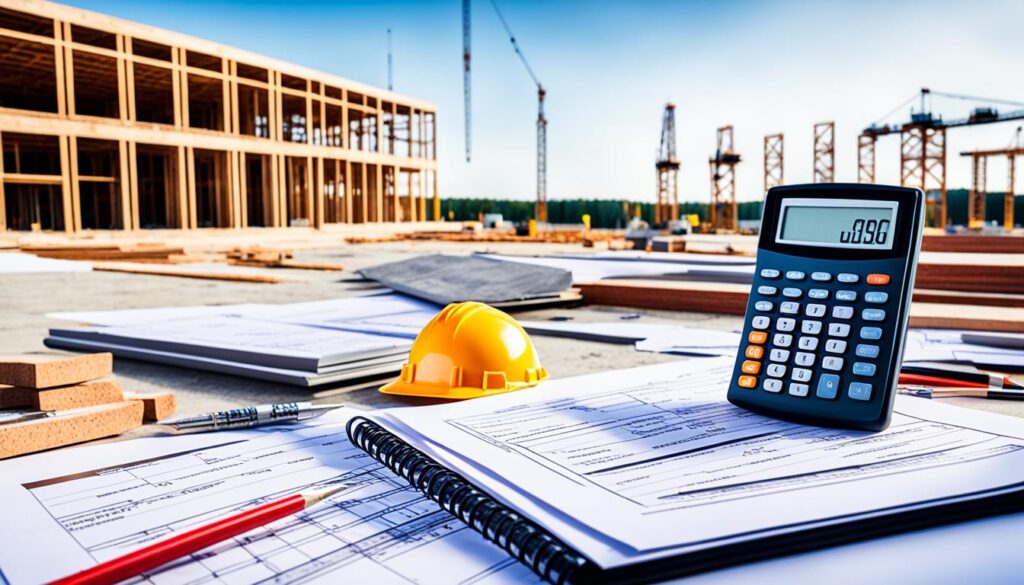
Successful real estate investment has long been one of the proven ways to become wealthy. The real estate market provides better returns on investment than the stock market without as much volatility. To become successful in real estate investing, it is important to keep your mind open to new ideas, know all of your options, and invest in your education. Additionally, understanding the market, managing risks, and focusing on buying low are key strategies for success in property investment.
Key Takeaways:
- Keep an open mind and invest in your education to succeed in real estate investing.
- Understand the market and identify key strategies for success.
- Focus on buying properties at a low price to maximize your return on investment.
- Properly calculate all costs associated with an investment property.
- Stay updated on market trends and evaluate growth potential.
Choosing Your Market & Timing The Investment Wisely
To become successful in real estate investment, it is important to choose your market and timing wisely. By focusing on your local real estate market, you can better understand the factors that influence property values in that specific area. This knowledge will allow you to make informed decisions when it comes to buying and selling properties.
When choosing a market for real estate investing, it’s crucial to avoid very hot markets where prices are at their peak. Instead, look for markets that are in the expansion phase. These markets provide great opportunities for growth and potential returns on investment. Conduct thorough research on market trends and economic indicators to identify these areas.
Factors to Consider When Selecting a Market:
- Population density: Choose neighborhoods with high population density to ensure a strong demand for rental properties or potential buyers.
- Amenities: Consider the availability of amenities such as schools, shopping centers, parks, and public transportation. These amenities can increase the attractiveness of the location and drive property values up.
- Crime rates: Opt for neighborhoods with low crime rates as they tend to be more desirable for tenants or buyers.
By carefully selecting your market and timing the investment, you can maximize your chances of success in real estate investing. Remember to stay informed about market conditions and continually evaluate potential investment opportunities.


Buy Low
Buying low is a key strategy for successful property investment. When searching for investment opportunities, it is important to look for properties that are priced below market value or have the potential for value appreciation.
One way to find properties at a lower price is to consider purchasing distressed properties from motivated sellers. These properties may require some repairs or renovations, but they can offer significant potential for a profitable investment. Additionally, exploring off-market deals can provide access to properties that are not listed on the traditional market, allowing for negotiation on price and terms.
However, it is crucial to exercise caution when buying a property and avoid overpaying. Conduct thorough research and analysis to determine the fair market value of the property. Engage with real estate agents or professionals who have expertise in the local market to gain insights into pricing trends and factors that may affect property value in the area.
By buying low, investors can maximize their potential return on investment and build a successful real estate portfolio.


Key Points:
- Look for properties priced below market value or with potential for value appreciation.
- Consider distressed properties or off-market deals for investment opportunities.
- Conduct research and analysis to determine the fair market value of a property.
- Seek advice from real estate professionals familiar with the local market.
Understand Your Costs Up Front
Properly understanding your costs upfront is essential for successful real estate investment. When planning to invest in a property, it is crucial to calculate not only the purchase price but also factor in the costs of repairs, maintenance, and any other expenses associated with the investment property. This comprehensive cost estimation will help you avoid any unexpected financial burdens and ensure a well-managed budget for your real estate investment.
Consider the following cost aspects when budgeting for your property investment:
- Repairs and Maintenance: Assess the condition of the property and estimate the costs of necessary repairs or renovations. Factor in expenses for routine maintenance, such as landscaping or HVAC servicing, to account for ongoing property upkeep.
- Additional Expenses: Identify other associated costs like property taxes, homeowner association fees, and any fees related to obtaining permits or licenses.
- Closing Costs: Remember to include closing costs such as attorney fees, appraisals, inspections, and title insurance. These costs vary depending on the location and purchase price of the property.
- Insurance: Determine your insurance requirements for the investment property, including property insurance, liability coverage, and any specialized coverage specific to the property type (e.g., flood insurance).
- Utility Costs: Research and estimate the monthly costs of utilities such as electricity, water, gas, and any other essential services required for the property.
By thoroughly analyzing and accounting for these various costs, you can accurately budget for your real estate investment venture and make informed financial decisions. Remember, proper cost estimation is an integral part of successful property investment, allowing you to proactively manage your expenses and maximize your potential returns.


Understand The Market
Understanding the market is crucial for successful property investment. By staying up-to-date with current market conditions and trends, you can make informed decisions that maximize your investment potential.
Analyze Current Market Conditions
Stay informed about the real estate market by tracking trends in consumer spending, mortgage rates, and unemployment rates. These factors can give you valuable insights into the overall health and stability of the market.
Study Historical Price Trends and Forecasts
By analyzing historical price trends and forecasts, you can identify areas with strong growth potential. Look for neighborhoods or cities that have historically shown consistent appreciation in property values, as this can be a good indicator of future success.
Evaluate Local Property Values and Rental Prices
Knowing the typical property values and rental prices in different communities is essential for evaluating the price of an investment property. Compare similar properties in the area to ensure you are making a smart investment that aligns with market standards.
To enhance the value of your investment property, consider renovating properties to make them more appealing to potential buyers or renters. A well-maintained property can attract higher rental income or increase its resale value in a competitive market.


Manage Your Risks In Real Estate Investment
Effective risk management is crucial in the world of real estate investment. By understanding and addressing potential risks, you can safeguard your investments and increase the likelihood of success. Here are some essential tips to help you manage risks in your property investments:
First and foremost, minimize debt by making a substantial down payment on your investment property. By reducing your debt burden, you decrease the financial risks associated with mortgage repayments and interest rate fluctuations.
In addition, maintaining a cash reserve is vital. This reserve will cover unexpected expenses, such as emergency repairs or vacancies, without putting you in a precarious financial position. It also enables you to ride out market downturns without having to hastily sell a property at a loss.
Furthermore, being aware of your risk tolerance is crucial. Understanding how much risk you are willing to take on will help you craft an appropriate investment strategy. Additionally, actively managing risks entails thorough analysis and consideration of various factors, such as market risk, interest rate risk, management risk, and legislative risk. By being proactive in identifying and mitigating these risks, you can protect your investments and optimize your returns.
FAQ
What are some smart property investment tips for success?
Some smart property investment tips for success include keeping an open mind, knowing your options, investing in education, understanding the market, managing risks, and focusing on buying low.
How do I choose the right market and timing for my investment?
To choose the right market and timing for your investment, focus on your local real estate market, understand the factors influencing property values, avoid very hot markets at their peak, and look for markets in the expansion phase. Select neighborhoods with high population density, amenities, and low crime rates.
What does it mean to "buy low" in property investment?
“Buying low” in property investment means looking for properties that are priced below market value or have the potential for value appreciation. This can include purchasing distressed properties from motivated sellers or exploring off-market deals.
How do I understand my costs upfront when investing in real estate?
Understanding your costs upfront when investing in real estate is essential. Calculate not only the purchase price of the property but also the costs of repairs, maintenance, and any other expenses associated with the investment property. Consider closing costs, insurance, and utility costs when budgeting for your investment.
How important is it to understand the market when investing in property?
Understanding the market is crucial for successful property investment. Stay up-to-date with current market conditions, including trends in consumer spending, mortgage rates, and unemployment rates. Analyze historical price trends and forecasts to identify areas with strong growth potential. Know the typical property values and rental prices in different communities to evaluate the price of an investment property.
How can I manage risks when investing in real estate?
Managing risks is important in real estate investment. Minimize debt by putting a substantial down payment on your investment property. Maintain a cash reserve to cover unexpected expenses and avoid having to sell a property quickly at a loss. Be aware of your risk tolerance and actively manage risks associated with property investments. Consider factors such as market risk, interest rate risk, management risk, and legislative risk when formulating your risk management strategy.









